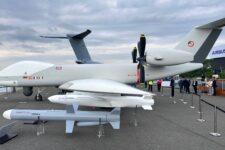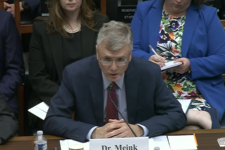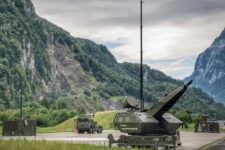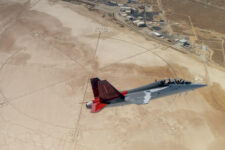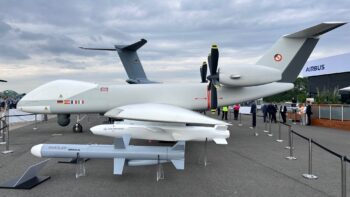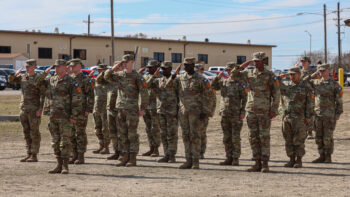
The Eurodrone MALE RPAS on display at the Berlin Air Show 2024 (Breaking Defense)
BELFAST — Europe’s Organisation for Joint Armament Cooperation (OCCAR) today welcomed India to the multinational Eurodrone aircraft program, becoming the second Asia-Pacific country behind Japan to receive observer status.
The agency said in a statement that Joachim Sucker, Director of OCCAR-Executive Administration (EA), had formally delivered the observer nation Letter of Approval to the Indian Embassy in Berlin.
“The OCCAR-EA Director congratulated the Government of India (GoI) on committing to commence this special relationship and expressed his hope that this first step will lead to a long, fruitful and mutually beneficial cooperation,” it added.
OCCAR oversees a number of high profile European defense projects including the A400M Atlas airlifter, Boxer armored utility vehicle, Tiger attack helicopter and Horizon Mid-life Upgrade (MLU)/FREMM multirole frigates.
India initially applied for Eurodrone observer status in August 2024 after Japan joined as an observer in November 2023. An observer nation typically receives access to technical information related to a given platform and can also place orders for it, but unlike full partners does not have a say over aircraft design, development or workshare decisions.
The OCCAR statement did not disclose any details about the benefits India will gain, and the agency did not immediately respond to a request for comment.
India’s interest in Eurodrone builds off a joint statement signed with Germany in October 2024 to deepen defense cooperation and which includes a “specific focus on technology collaboration, manufacturing/co-production and co-development of defence platforms and equipment.”
Valued at an estimated cost of €7 billion ($7.3 billion) and first launched in 2016, the Eurodrone Medium Altitude Long Endurance (MALE) Remotely Piloted Air System (RPAS) program, is led by the four partner nations of France, Germany, Italy and Spain. France’s Airbus and Dassault along with Italy’s Leonardo comprise the major industry partners.
The aircraft is under development to reduce European reliance on non-European solutions like the US MQ-9B. It is designed to support Intelligence, Surveillance, Targeting Acquisition and Reconnaissance (ISTAR) missions, but has been troubled by delays and rising costs.
Last year, a German Armed Forces annual armaments review criticized coordination difficulties between Airbus and Dassault, which it said caused delay to the drone’s preliminary design review. It remains to be seen if a first prototype aircraft flight, scheduled for 2027, will go ahead as planned.
The development and production of 20 Eurodrone systems, split between 60 aircraft and 40 ground control stations, is tied to a “global contract” signed between OCCAR and Airbus in 2022.
On its website, OCCAR notes that “delivery of serial items to PPS [Participating Partner States] is targeted by end of the decade” and the aircraft will become a “key enabler” for the French, German, Spanish-led Future Combat Air System sixth generation fighter program.
